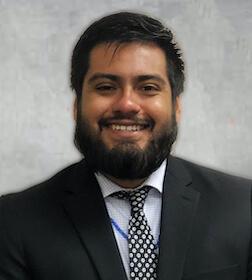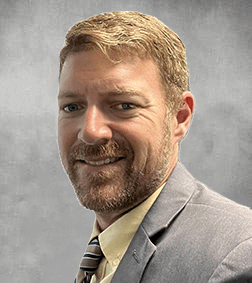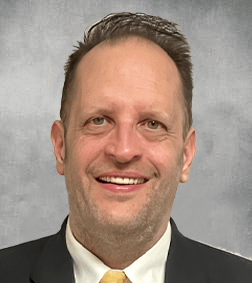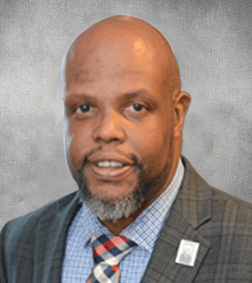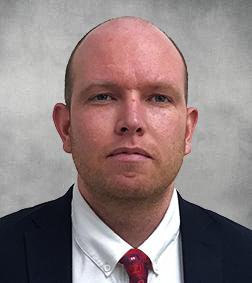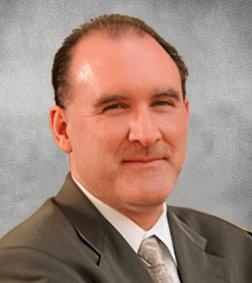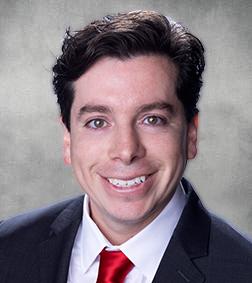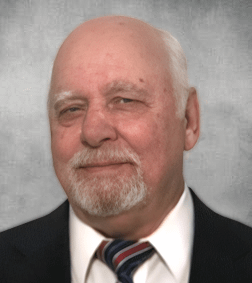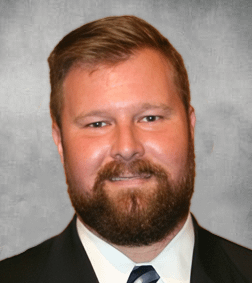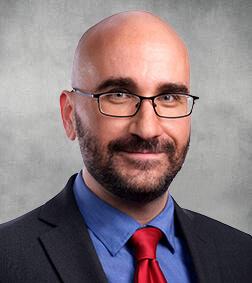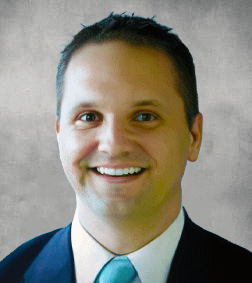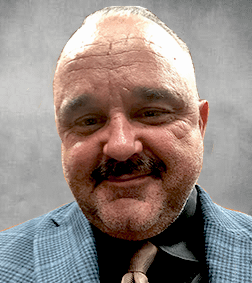Florida Criminal Defense Attorneys
Aggressively Protecting the Rights of Florida Residents
If you are up against criminal charges, you need an aggressive advocate in your corner. Our Florida criminal defense law firm is backed by decades of experience. We know how to handle tough charges, from DUI to sex crimes. When the unimaginable happens and you find yourself facing serious criminal accusations, make sure you reach out to Musca Law—Florida’s trusted criminal defense firm.
Our firm’s attorneys are among The National Trial Lawyers – Top 100 Trial Lawyers, included in the 2012 Florida Super Lawyers® for criminal defense, and boast 10.0 Superb Avvo ratings. We know how to protect your future. We are trustworthy, tenacious, and relentless when it comes to defending your name. Our skilled lawyers work to exploit the weaknesses in the prosecution’s case and develop a strategic defense for clients. Our record of success in and out of the courtroom speaks for itself.
Trust your defense to our seasoned criminal attorneys in Florida. Call (888) 484-5057 today.
Aggressive Defense. Proven Results.
Criminal convictions can have major consequences, from loss of employment to jail time to child custody issues. No matter your situation, securing reliable representation from a proven criminal defense attorney in Florida is crucial during this time. Musca Law is here to help you preserve your freedom and defend your name. We know the devastating effect that a criminal conviction can have on an individual’s life, which is why we are here to ensure you are treated fairly and given the best possible defense.

Attorney John Musca of Musca Law Firm explains the importance of choosing Florida criminal defense lawyers who will protect your legal rights.
Play VideoCases We Handle
Protecting Your RightsInside & Outside Of Court
If you’re facing criminal charges in Florida, you can’t risk hiring an inexperienced defense attorney. At Musca Law, you won’t have to. With more than 150 years of combined experience to our name, we are proven criminal defense lawyers, and we have the results to prove it. Learn more about the individual members of our team here.
Follow Us On Instagram
Latest Legal NEWS
What Happens Next?
-
The Stages of a Florida Criminal Case
One of the most commonly asked questions that people ask after being interrogated by police, charged with a crime, or arrested is "what happens next and what is the process?"
Being arrested can be intimidating, especially for those who have never had prior experience with law enforcement. Each stage of the process can affect the outcome of your case. Whether your case is reduced, dismissed, or goes to trial, you must know how the charges you are facing can negatively affect your life for years to come.
Hence, it would be best if you had a strong defense strategy right from the beginning of your case. Working with a seasoned Florida criminal defense lawyer as soon as possible after you are arrested could give you the greatest chance of having a favorable outcome.
Each American citizen is innocent until proven guilty when facing criminal charges. Moreover, you have the right to an attorney in your case. Facing criminal charges can be intimidating and downright frightening, but an experienced Florida criminal defense attorney can help guide you through each stage of the criminal process.
If you are facing criminal charges in Florida, immediately contact a criminal defense attorney at Musca Law. Our attorneys zealously fight on behalf of those charged with crimes in Florida. They will work diligently to obtain the best possible outcome in your case, which could mean that the charges are reduced or even dismissed.
Our Florida Criminal Law Firm handles all types of felony and misdemeanor criminal charges, including but not limited to:
All of Our Areas of Practice
BUI - Boating Under the Influence
Child Pornography
Drug Crimes - All Offenses
DUI - Driving Under the Influence
Homicide/Murder - DUI Manslaughter
Kidnapping
Theft - Petit Theft, Grand Theft, Burglary
Trespassing
Sex Crimes - Prostitution, Rape, Sexual Assault
Traffic Violations - Speeding, Reckless Driving
Violent Crimes - Assault, Domestic ViolenceFor those dealing with criminal charges in Florida, it is essential to know that the sequence of events in a Florida criminal case is similar in every county. That is why it is crucial to be educated throughout the process to make the most prudent decisions in your case. In this view, be sure to look up the court's public records to track your case as well as follow the advice of your Florida criminal defense lawyer.
-
Arrest or Notices to Appear
One of the most commonly asked questions that people ask after being interrogated by police, charged with a crime, or arrested is "what happens next and what is the process?"
Being arrested can be intimidating, especially for those who have never had prior experience with law enforcement. Each stage of the process can affect the outcome of your case. Whether your case is reduced, dismissed, or goes to trial, you must know how the charges you are facing can negatively affect your life for years to come.
Hence, it would be best if you had a strong defense strategy right from the beginning of your case. Working with a seasoned Florida criminal defense lawyer as soon as possible after you are arrested could give you the greatest chance of having a favorable outcome.
Each American citizen is innocent until proven guilty when facing criminal charges. Moreover, you have the right to an attorney in your case. Facing criminal charges can be intimidating and downright frightening, but an experienced Florida criminal defense attorney can help guide you through each stage of the criminal process.
If you are facing criminal charges in Florida, immediately contact a criminal defense attorney at Musca Law. Our attorneys zealously fight on behalf of those charged with crimes in Florida. They will work diligently to obtain the best possible outcome in your case, which could mean that the charges are reduced or even dismissed.
For those dealing with criminal charges, it is important to know that the sequence of events in a Florida criminal case is similar in every county. That is why it is important to be educated throughout the process so that you can make the most prudent decisions in your case. In this view, be sure to look up the court's public records to track your case as well as follow the advice of your criminal defense lawyer.
within the state. That is why it is important to be educated throughout the process so that you can make the most prudent decisions in your case. In this view, be sure to look up the court’s public records to track your case as well as follow the advice of your criminal defense lawyer. -
Booking
Within 24 to 48 hours after being placed under arrest in Florida, the accused will attend his or her first court appearance. The purpose of this appearance is to present the charges to the accused, ensure that the person has an attorney, and determine the amount set for bail. Other conditions can be set during this first appearance as well.
When at a first appearance, the accused does not have to speak, as law enforcement can use anything he or she says against them in later proceedings. Working with a seasoned criminal defense attorney can ensure that your legal rights are fully protected. Your attorney will also work towards improving your chances of obtaining favorable pretrial terms.
Following an arrest, the police will transport the accused to county jail for booking. They will take a booking photo, take an inventory of your belongings, and process you at the jail.
-
First Appearance – Advisory
If a person is not bailed out during their first day in jail, a judge will review their bond within 24 hours of the accused's arrest. This is done through a hearing known as an Advisory or First Appearance. During this process, the judge can review the amount of money set for an accused's bond and make changes to it as they see fit. Many times, the judge reduces the amount set for the bond. The judge advises the accused of the charges they are facing and any restrictions set on their bond, or the judge may deny the bond.
-
Arraignment
The Arraignment Hearing is where an accused submits a plea of guilty, not guilty, or nolo contendere (no contest). Even if an accused does not intend to challenge the charge they are facing, a plea of "not guilty" provides the defense attorney with more time to work on one's case.
-
Formal Charges
If there is sufficient evidence to prevail in a case, the prosecuting attorney will file an "Information," which will provide a list of the exact charge or charges that they will be pursuing. The criminal charges may be more severe than what was provided in the initial arrest report.
-
Discovery
When your plea is filed with the court, a defendant's attorney may then file a "Notice of Discovery" and a "Demand for Jury Trial." If a "Notice of Discovery is filed, this requires the prosecutor to provide an accused's attorney with a copy of all evidence they have collected. The accused's attorney must also provide the prosecutor with all available evidence that they have obtained. Evidence includes reports from the police, statements made by witnesses, and relevant documentation.
-
Early Resolution
Some counties in Florida have what is known as an Early Resolution Program, which is a deal that involves all parties in the case. This means that the case ends early with little cost and time. However, this is not a program that causes criminal charges to be wiped away. The deal will most often impose certain conditions on the accused and result in a criminal record.
-
Pretrial Intervention
A person may be eligible for a Pretrial Intervention Program or PTI. May individuals that are non-violent offenders, first-time offenders, or facing drug-related charges may become eligible for PTI. The State Attorney's Office typically has a designated person who reviews criminal cases to determine if an accused is qualified for the program.
If an accused enters a PTI, they will be required to undergo a number of different requirements, including community service, drug court attendance, restitution to a victim, or a combination thereof.
When an individual completes a PTI, their charges are then entirely dismissed.
-
Motion to Suppress
There are certain circumstances where law enforcement did not adhere to the law or pursue specific required procedures when collecting evidence in one's criminal case. For example, police may improperly search an accused's house, car, or person or seize documentation without a subpoena. During a DUI stop, certain procedures must be followed, and if they are not, the court could suppress the evidence obtained. This is accomplished through filing a Motion to Suppress Evidence.
-
Motion to Suppress Evidence
There will be a hearing on the motion, and if successful, the evidence unlawfully obtained by law enforcement may be "excluded" by the court. Evidence that is excluded cannot be used against an accused at any time during the criminal case. In essence, excluded evidence is the same as if it never existed. If an attorney is successful in suppressing specific evidence, the case could ultimately be dismissed.
-
Preliminary Hearing (or Pretrial Hearing)
During a preliminary hearing, the accused can discuss their case with counsel and develop a strong defense strategy. During the hearing, evidence is introduced in the case, but there is a possibility that the case could be thrown out or dismissed altogether.
At the hearing, prosecutors must establish that there is sufficient evidence for probable cause. During the hearing, the accused's attorney has the chance to submit evidence to demonstrate that there is no probable cause or police unlawfully obtained that evidence in the case. If successful, these defenses could cause the charges to be reduced or even dismissed. A seasoned Florida criminal defense attorney at Musca Law can help you to fight for your legal rights and interests at each stage of your case.
During the pretrial hearing, the accused's attorney and the prosecutor discuss the underlying case. In the pretrial hearing, pleas offers may be negotiated, accepted, or rejected. Most judges prefer deals that are struck during a pretrial hearing because their calendars are often overloaded. If the accused receives a favorable deal at this stage of the case, then it will be finalized.
If the case is not finalized, the judge will likely schedule another pretrial hearing which will likely occur in a month or two following the first hearing. A criminal case can involve several pretrial hearings; however, at some point, the judge will ultimately set a final trial date.
-
Plea Bargaining/Plea Deal
If a case has not been dismissed, the next stage of the criminal process will be the plea bargaining stage. This is where the prosecution and the defense work together to reach a possible plea agreement. The plea bargaining stage could occur at any time following a preliminary hearing but before the case is adjudicated. A defendant does not have a right to a plea deal, however.
The plea bargain usually occurs when a guilty plea by the accused seeks a lesser charge or sentencing. The prosecution can also enter into a plea bargain if there was a significant amount of evidence that was dismissed during the pretrial hearing. If the prosecution has doubts about a Florida criminal matter, the district attorney could seek a plea bargain.
The plea bargaining process can be terminated at any point before a plea is officially entered. This often occurs when the accused does not want to accept the terms of the plea that are offered by the prosecution. The case would then go to trial by a judge or jury.
A plea bargain can be made at any time during a case, but it is most often pursued during a pretrial hearing. Prosecutors in Florida are often overloaded with work and maybe motivated to cut the case short by entering into a plea with an accused. Judges often suggest that there should be a plea settlement reached to spare judicial time and resources.
settlement reached to spare judicial time and resources. -
Depositions
If an accused does not accept a plea bargain, or if none was offered, the case will then proceed to trial. Beforehand, a defense attorney may decide to seek depositions of victims, experts, and witnesses. No judge or jury is present during a deposition. It is just the criminal defense attorney, the defendant, the prosecutor, and the individual who is being deposed.
During a deposition, an experienced Florida criminal defense attorney can determine exactly how an individual will respond to questioning at trial without a judge or jury being privy to the results. The deposition allows for a defense attorney to challenge or expand upon the answers submitted by the deponent. Depositions are an excellent way for a Florida defense attorney to uncover weaknesses in the prosecution's case.
-
Criminal Trial
After a not-guilty plea is entered, the case will then progress to trial. A judge or jury may decide the criminal case. For a trial by judge, both the defense and prosecution present their case to a judge who ultimately renders the final determination of guilt or innocence in the matter. The standard the judge must follow in determining whether or not an individual is guilty is beyond a reasonable doubt.
In a trial by jury, the procedure is very different. During this process, the defense and prosecution must go through a process of jury selection and argue both sides of the case in front of a judge and jury. In most jury trials, it proceeds as follows:
- Opening statements
- The prosecutor’s case is presented to the court
- The defense cross-examines of the prosecutor’s case
- The defense’s case is presented to the court
- The prosecutor cross-examines defense’s case
- Closing arguments
- Verdict
After deliberating, the jury renders its verdict. If the verdict is not guilty, the defendant is able to leave the court immediately. However, sentencing can occur from two weeks to ninety days from the trial date if the verdict is guilty. A judge will then determine what punishment is necessary pursuant to Florida law.
In Florida, the consequences of a guilty verdict may include fines, imprisonment, community service, mandatory education classes, and probation. With an experienced Florida criminal attorney by your side, they can help you to fight for you the least severe punishment.
At times, it is necessary to go to trial to have your story heard and obtain a fair outcome. However, the fact is that proceeding to trial may be a risky move that is not ideal for most individuals. There is considerable time and cost associated with a trial and a significant amount of stress involved in the process. In essence, going to trial is like rolling the dice, irrespective of the knowledge and experience of your Florida defense lawyer. It is important to realize that during a trial, it is often difficult to influence the thoughts and ideas of the jurors. You may also face more severe punishment following a trial than during the plea bargaining stage.
-
Acquittal or Sentencing
If a defendant loses at trial, the judge will announce a sentence should the offense be charged as a misdemeanor. For felony convictions, the judge may order a separate hearing for sentencing. Both sides may present evidence during this hearing to argue for a harsher or less harsh sentence.









